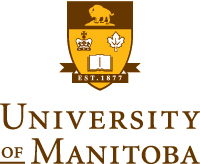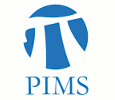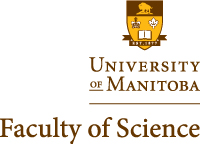2014 CMS Summer Meeting
University of Manitoba, June 6 - 9, 2014
Related Events
CMS Annual General Meeting
Sunday, June 8, 12:30 - 13:30
The CMS Executive is inviting all CMS members and meeting participants to join them at an informal luncheon to focus on what was achieved in 2013. There will be a short presentation followed by questions and answers. This is an opportunity for participants to get together with the CMS Executive and discuss emerging issues as well as directly voice their opinions, concerns and interests.
Response of the Math Community to Recent Trends in Public Math Education
Education Panel Session
Sunday, June 8, 17:15 - 18:15
Ballroom B, Delta Winnipeg
In recent years across Western Canada, Ontario and the Maritimes there has been a trend in the Education Community toward idiosyncratic instruction methods and elimination of core aspects of mathematics from early and middle years education -- in particular, the memorization of math facts and the teaching of standard algorithms are no longer supported; in some instances they are militated against as if they were harmful. The supporting ideology appears to hold that higher-thinking skills ("understanding", "problem solving", "critical thinking") can be taught in the absence of fundamental skills and broadly connected factual content knowledge. Although many hold that mathematics is relentlessly heierarchical, with new content built upon previously mastered supporting skills, the current Education ethos appears to assume that this understanding is not only wrong, but harmful; some advocates go as far as to argue that these standard foundational elements are antithetical to understanding and the development of problem solving skills. As this view is incorporated into public school curricula and teacher training we have seen Canadian scores steadily decline in international assessments. Many mathematicians feel that math education in Canada is at a crossroads -- perhaps even a crisis. A similar series of changes occurred somewhat earlier in the U.S. and in Britain, with similar outcomes and responses by the mathematical community. Both of those countries have recently changed course, re-introducing aspects of foundational mathematics back into their curriculum. We have gathered a small panel of mathematicians with a variety of expertise to briefly discuss the situation in Canada, and the road ahead.
Featuring four panelists:
- Gerda de Vries (Alberta)
- Stephen Wilson (Johns Hopkins)
- Sherry Mantyka (Memorial)
- Anna Stokke(Winnipeg)
Canadian Mathematical Society Awards Banquet
Sunday June 8
Reception 6:30pm - 7:15pm
Dinner 7:15pm - 10pm
PanAm Room, Winnipeg Convention Centre
The Canadian Mathematical Society invites you to their awards banquet to highlight exceptional performance in the area of mathematical research and education. Prizes will be awarded during the event.
Communicating your research: a reflection on mathematical presentations
Studc is inviting all graduate students and postdocs to participate in a special scientific session focused on clearly communicating their work. This session is mainly meant to give young researchers an opportunity to reflect on and refine their academic presentation skills. To emphasize the focus on communicating clearly, students will be challenged with presenting an introductory talk about their field to a general mathematical audience. All participants are encouraged to opt into receiving anonymous feedback on their talk from both the session chairs and members of the audience. This constructive feedback will allow participants to identify their strengths and weaknesses as presenters in order to become more effective and engaging speakers in this interactive scientific session.
To register please submit your abstract here.
STUDC Student Workshop - Intermediate LaTeX Tutorial
Friday, June 6, 13:30 - 15:30
This workshop is designed to help participants improve the quality and readability of their LaTeX documents.
Topics include advanced mathematical formatting, an overview of the mathtools and tikZ packages, optimal usage
of equation environments and theorem environments, and tips and tricks to improve workflow. Attendees should be
familiar with basic LaTeX (for example, be capable of typesetting an assignment, article or small set of notes).
NSERC Discovery Grants Program
Saturday, June 7, 17:45 - 18:45 pm
Madeleine Bastien, Team Leader for the Research Grants at NSERC, will provide an overview of
program news and results of the 2014 NSERC Discovery Grants competition. This will be followed
by an information session on the Discovery Grant evaluation process.
Pearson Innovative Learning Resources to Support Mathematics Education Luncheon
Saturday, June 7, 12:30 - 14:00
In this session, Pearson will highlight their post-secondary learning resources that support innovation in teaching
mathematics. MyMathLab adaptive learning, MyMathTest adaptive testing and Learning Catalytics, the
new ‘bring your own device’ classroom student engagement, assessment, and classroom intelligence
system will all be covered. Please bring your own web-enabled device and engage with Learning Catalytics first hand.
Lunch will be provided.
Nelson Education's Digital Culture and Education
Friday, June 6, 16:45 - 17:45
The student population is part of a generation known as the “digital natives”. We will discuss some of the characteristics of this generation and methods for engaging them in mathematics education. Refreshments will be provided.







